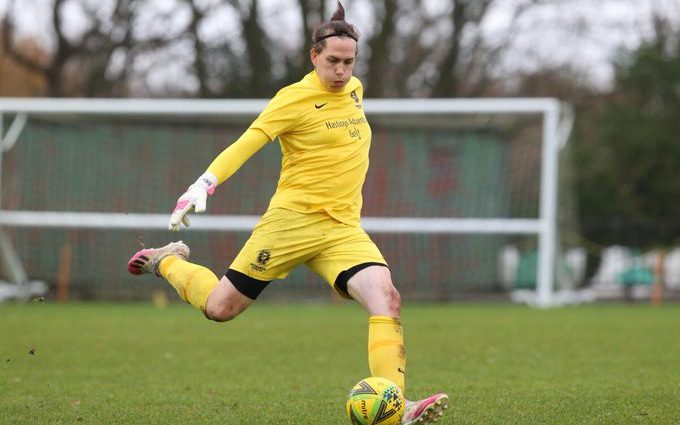FA Prohibits Transgender Women from Competing in Women’s Football
In a significant policy shift, the Football Association (FA) has declared that transgender women will be prohibited from participating in women’s football matches across all levels starting June 1, 2025.
This decision follows an earlier policy initiated on April 1, which allowed transgender women to compete in amateur women’s events provided they maintained low testosterone levels for a minimum of one year. However, the FA revised its stance following a recent Supreme Court ruling that clarified the legal interpretation of the term “woman”.
The England and Wales Cricket Board (ECB) is anticipated to align with the FA’s new policy during an upcoming meeting scheduled for Friday.
The FA stated, “The Supreme Court’s decision on April 16 necessitates a revision of our policy. Henceforth, transgender women will not be allowed to participate in women’s football in England, with this regulation taking effect from June 1, 2025.
“We acknowledge that this change may pose challenges for individuals who simply wish to engage in the sport they love within their identified gender, and we are reaching out to the registered transgender women currently active in women’s football to communicate these changes and explore how they can maintain their involvement in the sport.”
Moreover, the FA emphasized its responsibility as the governing body of national football to ensure the sport is accessible to as many individuals as possible while adhering to legal and international guidelines established by UEFA and FIFA.
“Initially, our policy that permitted transgender women to participate was grounded in this objective and backed by expert legal advice,” the FA added. “This matter is complex, and our ongoing position has always been that we would reassess and amend our policy if substantial changes occurred in law, science, or its application in grassroots football.”
Advocates have long urged football to mirror other sports like rugby and hockey by limiting women’s competitions to those assigned female at birth, with an open category for all other competitors.
Fiona McAnena, director of campaigns at Sex Matters, commented, “This decision is welcomed but should have been made sooner. The FA has been presented with ample evidence regarding the repercussions on women and girls stemming from its previous policy of allowing individuals assigned male at birth who identify as women to compete in women’s teams. The stipulation to lower testosterone levels illustrates that there was an awareness that these individuals are not women.”
“Fortunately, the UK Supreme Court has now validated this view, confirming it is lawful to exclude ‘all men, including trans women, regardless of their Gender Recognition Certificate status.’ Every other sporting organization should now work to establish a true women’s category, bringing an end to this regrettable chapter in history,” she concluded.
Currently, under the previous April 1 rules, about 20 registered transgender women can continue playing amateur football in England if they have maintained testosterone levels below 5nmol per litre for the past 12 months. However, the FA retains the authority to intervene concerning safety and fairness, referring cases to the transgender and non-binary eligibility committee as needed.
From June 1 onwards, transgender women will be required to compete in men’s football.
As it stands, there are no transgender women competing near the elite level in England. FIFA, the global governing body for football, has mandated only reduced testosterone levels for eligibility.
To date, there have been no requests from transgender women to participate in professional or international women’s football. An example of transgender inclusion in women’s sports is Canadian defender Quinn, who was assigned female at birth and identifies as transgender and non-binary but competes in women’s football.
In September, Sutton United’s women’s team postponed a match against Ebbsfleet United after facing backlash for signing a transgender goalkeeper, Blair Hamilton. Sutton’s coach, Lucy Clark, notable for being the first openly trans referee, was appointed as manager in January 2024.

In November, a protest against the FA’s transgender policy took place outside Wembley Stadium on the day of a men’s match between England and the Republic of Ireland, following an incident where a 17-year-old girl was suspended for two matches over comments made to a transgender opponent during a grassroots match.
She received penalties after reportedly asking the opponent, “Are you a man?”
Currently, the ECB’s existing policy allows for self-identification at all recreational and amateur levels in cricket. However, following the Supreme Court’s ruling, the ECB’s board of directors is expected to address potential policy modifications during their meeting on Friday.
Last year, the ECB revised its transgender participation guidelines to align with the International Cricket Council’s regulations, restricting all players who have undergone male puberty from competing in women’s professional cricket, irrespective of any surgeries or treatments. This included all England matches, first and second tiers of women’s county cricket, and the women’s Hundred competition, while permitting players who have experienced male puberty to play in Tier 3 of county cricket and recreational leagues.
If the ECB’s board confirms the anticipated policy changes, the ban on players who have gone through male puberty will be extended to encompass all women’s and girls’ cricket at both professional and club levels.




Post Comment